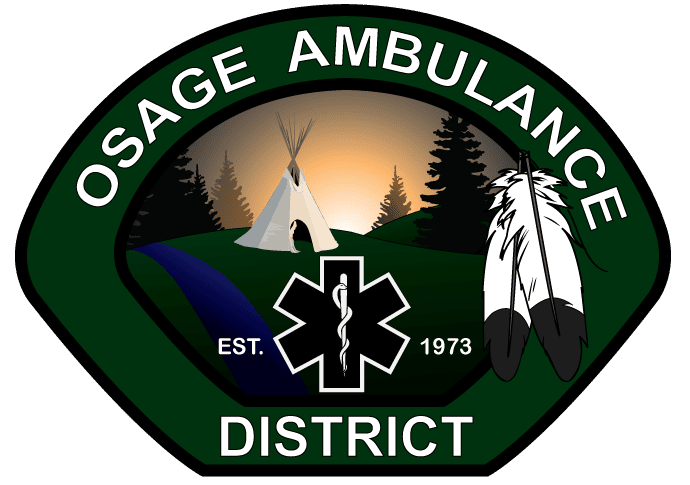We offer a variety of different community education courses. Click below to learn more about each course:
American Heart Association (AHA) Courses
Heartsaver® First Aid, CPR and AED (Seated or Heartcode)
The AHA’s Heartsaver First Aid CPR AED course trains participants to provide first aid, CPR, and use an automated external defibrillator (AED) in a safe, timely, and effective manner. Reflects science and education from the American Heart Association Guidelines Update for CPR and Emergency Cardiovascular Care (ECC).
Who should take this course?
The AHA’s Heartsaver First Aid CPR AED Course is designed for anyone with little or no medical training who needs a course completion card for their job, regulatory (e.g., OSHA), or other requirements, or anyone who wants to be prepared for an emergency in any setting.
What does this course teach?
- First aid basics
- Medical emergencies
- Injury emergencies
- Environmental emergencies
- Preventing illness and injury
- Adult CPR and AED use
- Opioid-associated life-threatening emergencies
- Optional modules in Child CPR AED and Infant CPR
Heartsaver® Pediatric First Aid CPR and AED (Seated or Heartcode)
The Heartsaver Pediatric First Aid CPR AED course trains participants how to respond to and manage illnesses and injuries in a child or infant in the first few minutes until professional help arrives. Reflects science and education from the American Heart Association Guidelines Update for CPR and Emergency Cardiovascular Care (ECC) and the 2015 AHA/Red Cross Guidelines for First Aid.
Who should take this course?
The AHA Heartsaver Pediatric First Aid CPR AED Course is designed for anyone involved in childcare who have a duty to respond to illnesses and injuries in a child or infant in the first few minutes until professional help arrives. Including: childcare workers, teachers, camp counselors, etc
What does this course teach?
- First aid basics including medical, injury, poison, and environmental emergencies, preventing illnesses and injuries and controlling bleeding & bandaging. Covers topics like using a tourniquet, shock, internal bleeding, burns and electrical injuries, allergic reactions, breathing problems & dehydration, diabetes & low blood sugar, heat-and cold-related emergencies, drowning, amputations, bites and stings, broken bones and sprains. Also covers splinters, nose bleeds, fainting, seizures, and injuries to the head, eyes, neck, spine, mouth, and teeth.
- CPR AED and choking: CPR and AED Use for Adults*, Children and Infants, Adult*, Child, and Infant Choking
*Optional module
Basic Life Support For Healthcare Providers (Seated or Heartcode)
The AHA’s BLS course trains participants to promptly recognize several life-threatening emergencies, give high-quality chest compressions, deliver appropriate ventilations, and provide early use of an AED. Reflects science and education from the American Heart Association Guidelines Update for CPR and Emergency Cardiovascular Care (ECC).
Who should take this course?
The AHA’s BLS Course is designed for healthcare professionals and other personnel who need to know how to perform CPR and other basic cardiovascular life support skills in a wide variety of in-facility and prehospital settings.
What does this course teach?
- High-quality CPR for adults, children, and infants
- The AHA Chain of Survival, specifically the BLS components
- Important early use of an AED
- Effective ventilations using a barrier device
- Importance of teams in multirescuer resuscitation and performance as an effective team member during multirescuer CPR
- Relief of foreign-body airway obstruction (choking) for adults and infants
Advanced Cardiac Life Support (Seated or Heartcode)
More information coming soon.
Pediatric Cardiac Life Support (Seated or Heartcode)
More information coming soon.
Health and Safety Institute (HSI) Courses
Adult First Aid, CPR and AED
More information coming soon.
Adult First Aid Only
More information coming soon.
CPR Only For All Ages
More information coming soon.
Pediatric First Aid, CPR and AED (Seated or Blended)
More information coming soon.
Stop The Bleed Courses
Stop The Bleed
A bleeding injury can happen anywhere. We’ve all seen it happen too often—on the news or in everyday life. Life-threatening bleeding can happen in people injured in serious accidents or disasters. Instead of being a witness, you can become an immediate responder because you know how to STOP THE BLEED®
What You’ll Gain from the Course
The person next to a bleeding victim may very well be the one who’s most likely to save him or her from bleeding to death. By learning how to STOP THE BLEED®, you’ll gain the ability to recognize life-threatening bleeding and act quickly and effectively to control bleeding once you learn three quick techniques. Take the STOP THE BLEED® training course and become empowered to make a life or death difference when a bleeding emergency happens.
How We Teach
Our instructors will teach you live—in person, using training materials specially developed to teach bleeding control techniques. They will not only instruct you, they will be available to check your movements as you practice three different bleeding control actions. They will keep working with you until you demonstrate the correct skills to STOP THE BLEED® and save a life.
What You’ll Learn
What stops bleeding? In a STOP THE BLEED® course, you’ll learn three quick techniques to help save a life before someone bleeds out: (1) How to use your hands to apply pressure to a wound; (2) How to pack a wound to control bleeding; (3) How to correctly apply a tourniquet. These three techniques will empower you to assist in an emergency and potentially save a life.
Who Can Take the Course
A STOP THE BLEED® course is for people who are interested in learning this lifesaving skill. The American College of Surgeons STOP THE BLEED® campaign has trained over 1 million people including students, teachers, and community groups. We are committed to training anyone who is old enough to understand what the course teaches and is interested in learning how to STOP THE BLEED® and save a life.
Interested In Community Education?
If you are interested in any of these courses and want more information, please complete the form below and we’ll be in touch!
"*" indicates required fields

